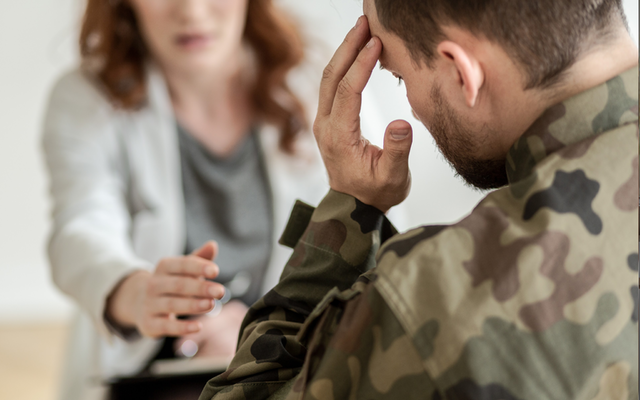
Explore Some Options For What to Do When Your Physician Won’t Recommend Marijuana
Despite the exponential growth of the medical cannabis market in the U.S, there are still a lot of things to improve on. 17 states still regard marijuana use as illegal, while in the states that legalize this herb, the medical cannabis program remains a mess.
Nevertheless, the number of medical marijuana patients keeps increasing daily. Statistics revealed an increase in the number of registered MMJ patients to 814000 in 2017 from the previous 641000 in 2016. With more states introducing MMJ programs, the number of registered patients is over one million.
A medical marijuana card is important for various reasons, and each state has varying qualifying conditions. More than 85% of the MMJ license or card holder reveals that they enjoy evidence-based treatment for their conditions. Furthermore, 60% say they applied for the MMJ card due to severe pain.
In most states, you must get a licensed physician's recommendation for the MMJ card approval. However, the biggest issue is the number of members of the medical community who are unconvinced about the health or therapeutic benefits of weed. Furthermore, some have inadequate information about medical marijuana. With the federal state considering marijuana illegal, the physician has no legal obligation to approve your medical marijuana application.
Some individuals could say or feel that the physicians are living in the past as they continue to view marijuana as a Schedule I drug. The Controlled Substances Act in the U.S says that marijuana doesn’t have any recognized value and users may become potential abusers. With many studies and researchers supporting marijuana use, you’ll realize weed is less addictive than other routine substances like caffeine and tobacco, making the CSA view ridiculous.
What Happens After an MMJ Doctor Rejects Your Application?
A survey by the ‘Institute of Medicine of the National Academies shows that approximately 100 million U.S residents have pre-approved conditions that marijuana can alleviate. The survey further shows that debilitating conditions have led to lost productivity among employees, costing the country’s economy over $50 billion annually.
Most doctors usually try to make patients’ lives easier by taking advantage of the health benefits of medical cannabis. Due to the physicians' sympathy for the patients, they can’t hesitate to recommend medical marijuana use to alleviate their conditions or diseases.
Nevertheless, not all physicians will always approve of medical marijuana for their patients. Some physicians may fail to agree due to the following reasons:
FDA is yet to approve medical marijuana use. With the FDA restriction on the use of marijuana, most physicians may fear losing their licenses and reputation. All physicians pledge with the Hippocratic Oath not to do any harm. Despite several studies into the therapeutic benefits of marijuana, physicians can’t find enough evidence to allow patients to rely on medical marijuana. The fear of unknown risks prevents some doctors from recommending medical cannabis.
States require physicians to apply to the specific medical cannabis program. Unlike the tiring process of getting your MMJ card, physicians usually have difficulty navigating through the process to apply to the state MMJ program. Furthermore, the doctor must fulfill some rigorous assessments. Therefore, doctors who don’t believe in marijuana to alleviate various conditions may not bother getting through this lengthy process.
Some doctors may refuse to recommend medical marijuana if you haven’t established a bonafide relationship. The relationship involves the doctor reviewing your medical history, and records, monitoring your disease or condition, and conducting evaluations. Experts advise that you need to have seen the same physician for approximately 3 to 6 months to qualify. Remember, most experienced physicians usually spot or identify an imposter easily.
Despite cannabis being less addictive than most substances, some doctors have adopted a certain unnecessary addiction-risk mindset. Thus, the mindset makes them concerned about the possibility of overdose or abuse.
Reports show that most physicians lack adequate knowledge or insights about weed, as no school curriculum teaches medical marijuana. Thus, these physicians rarely understand or can prove that marijuana is useful to alleviate various issues or will cause adverse effects.
Currently, it’s pretty effortless for you to apply and get your MMJ card in some states. For instance, with recreational and medical marijuana legal in California, you can complete the application process and get the card in less than an hour. The California MMJ application process includes an online video or voice evaluation with the physician.

Remember, you can never obtain an MMJ card without the physician’s recommendation. However, you shouldn’t give up if the physician refuses to approve your recommendation. Let’s look at the few things to do if the physician doesn’t approve your recommendation:
Find a ‘Cannabis friendly” Physician
Finding a marijuana-friendly doctor is easier said than done, depending on your state. In some states with numerous state-approved and licensed doctors, you’ll find it easy to get a physician to recommend you for the medical marijuana program. Remember, there is little chance that a physician who refuses to approve your application will change their mind.
The best alternative is searching for MMJ doctors or clinics with a reputation for recommending patients for medical marijuana programs. You can even find the best information on cannabis-friendly physicians on different forums. Thus, even if your first doctor refuses to approve the recommendation, you can consider searching for a better option. Importantly, request a letter outlining your condition and the medical treatment to help you save time in finding the right physician.
Consider Referrals
You can always consider referrals if your physician refuses to approve your recommendation. Despite the doctor feeling uncomfortable recommending medical marijuana, they can refer you to better or alternative medical cannabis clinics for a comprehensive follow-up consultation. It's usually common when the physician isn’t updated with the latest on the herb. However, don’t expect a referral from a staunch anti-weed physician.
Avoid Repeating the Same Mistake
Knowledge is usually power when obtaining an MMJ card. There is a high chance that the physician will provide you with a recommendation, even when they think you aren't eligible. Ensure that you understand the conditions that make you eligible for your state's MMJ card. Despite the variations, below are common conditions in most states:
● HIV/AIDs
● Migraine
● Crohn’s Disease
● Multiple Sclerosis
● Terminal illness
● Fibromyalgia
● Chronic pain
● Chemotherapy-related nausea
● Epilepsy
During the consultation, you might sometimes carry the wrong paperwork or documents. Remember, the medical professional will discuss with you the reason why marijuana is a better treatment option. The physician will request your medical history and records before deciding based on the data. Furthermore, the doctor will consider your thoughts before deciding.
Many MMJ doctors will likely reject the recommendation if you display a poor attitude. Thus, don’t walk into the doctor’s office with the guarantee of getting approval. Preferably, enter the room with a belief or attitude that the physician will resist the idea. These thoughts help you walk into the office to change the physician’s opinion.
Visit a Medical Dispensary
Most individuals visit the dispensary to buy their preferred medical marijuana products after obtaining the MMJ card. Nevertheless, you can visit the location and talk to the budtender to learn more about the MMJ application process. With their vast knowledge, they may know some marijuana-friendly doctors or help you get the contacts of a reliable medical marijuana clinic.
However, most individuals have been wondering why a dispensary budtender would help them get the MMJ recommendation. The dispensary will help you because you’ll get back a satisfied customer after getting the card, translating to more income.
Switch to Online
The rejection of an MMJ recommendation sounded terrible a few years ago. After the rejection, you had to start the slow and tiring process of looking for another physician. Walking around looking for a suitable doctor is the last thing you’d want when having a debilitating or chronic condition that limits movement.
However, technological advancement has provided much-needed relief. Service providers such as HappyMD have made getting a doctor's MMJ application approval easier and more convenient. For instance, you can receive MMJ recommendation approval within minutes at HappyMD. However, the main drawback is their service provision, as the platform doesn't offer them in all states.
Wrapping Up on Medical Marijuana Application Refusal
The ease of obtaining your MMJ card depends on your state. Even in most states with legal marijuana use guidelines, there is a significant variation in the quality of MMJ programs. You’re lucky to live in California as you can get your approval in a few minutes, even without leaving your home.
Besides struggling to obtain the MMJ card or licensed dispensaries, it's usually daunting to get a licensed or state-approved doctor ready to approve your recommendation for medical marijuana use. While you may find it necessary or easy to get angry at these physicians for turning down your application, it’ll be good to understand why they didn’t approve your application.
With the federal government viewing marijuana as illegal, most doctors will never recommend the drug, regardless of state laws. More so, some physicians have inadequate knowledge about marijuana and can never sign off on your application. Lastly, others just hate the herb naturally.
Regardless of the basis of refusal, you don’t need to panic or get upset. You can always get a marijuana-friendly doctor willing to recommend you for medical marijuana use. Experts warn against convincing the initial physician to approve your application, as they’ll already have made up their minds. Instead, you can consider researching online to ensure that you’re having the right MMJ application process. Afterward, find a medical marijuana physician likely to approve your recommendation.


.png)